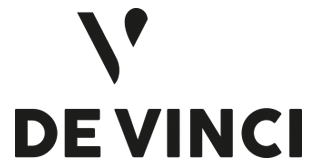@article{mali_3855,
title = {DaMoOp: A global approach for optimizing denormalized schemas through a multidimensional cost model},
author = {Jihane Mali and Ahvar Shohreh and Faten Atigui and Ahmed Azough and Nicolas Travers},
url = {https://doi.org/10.1016/j.is.2025.102598},
year = {2026},
date = {2026-02-01},
journal = {Information Systems},
volume = {136},
pages = {102598},
abstract = {The complexity of database systems has increased alongside the exponential growth of data, necessitating Information Systems (IS) architects to continuously refine data models and meticulously select storage and management options that align with requirements. While existing solutions focus on data model transformation, none offer guidance in selecting the most suitable data model for a given use case. In this context, we propose DaMoOp, an automated approach for leading data model selection process. DaMoOp starts from a conceptual model and associated use case comprising queries, settings and infrastructure constraints, to generate relevant logical data models. A cost model, considering environmental, financial, and temporal factors, facilitates comparison and selection of the most suitable data model. Our cost model incorporates both data model and queries costs. Additionally, we suggest a data model selection process that enhances the ability to choose the optimal data model(s) for a specific use case, while also adapting to rapidly evolving use cases. We provide a strategic optimization approach designed to identify the most cost-efficient and stable data model as use case scenarios evolve. Moreover, we offer a simulation tool for the entire process, which enables visualizing the impact of use case variations on data model costs, thus empowering IS architects to make informed decisions.},
note = {The complexity of database systems has increased alongside the exponential growth of data, necessitating
Information Systems (IS) architects to continuously refine data models and meticulously select storage and
management options that align with requirements. While existing solutions focus on data model transformation,
none offer guidance in selecting the most suitable data model for a given use case. In this context, we propose
DaMoOp, an automated approach for leading data model selection process. DaMoOp starts from a conceptual
model and associated use case comprising queries, settings and infrastructure constraints, to generate relevant
logical data models. A cost model, considering environmental, financial, and temporal factors, facilitates
comparison and selection of the most suitable data model. Our cost model incorporates both data model and
queries costs. Additionally, we suggest a data model selection process that enhances the ability to choose the
optimal data model(s) for a specific use case, while also adapting to rapidly evolving use cases. We provide a
strategic optimization approach designed to identify the most cost-efficient and stable data model as use case
scenarios evolve. Moreover, we offer a simulation tool for the entire process, which enables visualizing the
impact of use case variations on data model costs, thus empowering IS architects to make informed decisions},
keywords = {},
pubstate = {published},
tppubtype = {article}
}




































